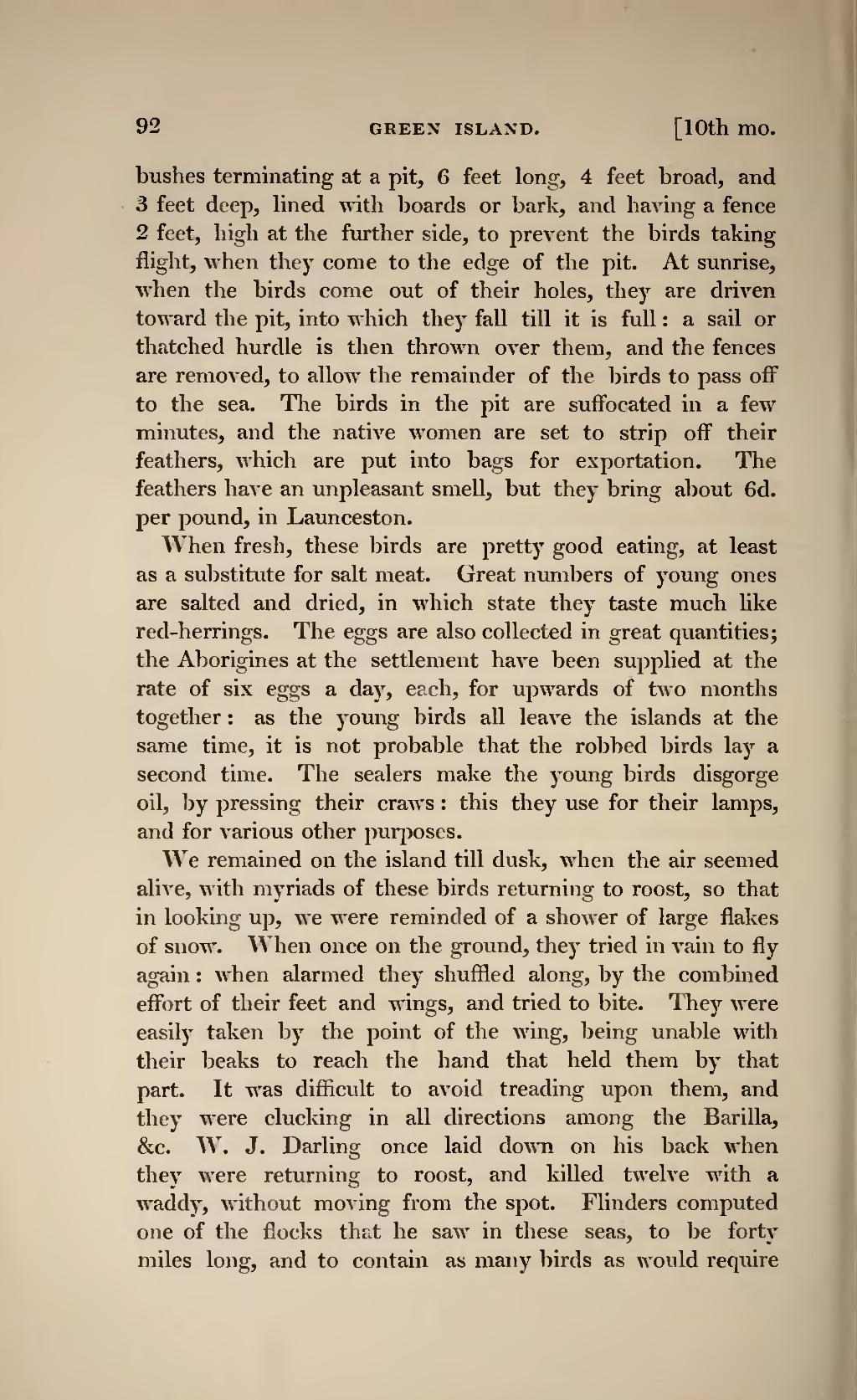bushes terminating at a pit, 6 feet long, 4 feet broad, and 3 feet deep, lined with boards or bark, and having a fence 2 feet, high at the further side, to prevent the birds taking flight, when they come to the edge of the pit. At sunrise, when the birds come out of their holes, they are driven toward the pit, into which they fall till it is full: a sail or thatched hurdle is then thrown over them, and the fences are removed, to allow the remainder of the birds to pass off to the sea. The birds in the pit are suffocated in a few minutes, and the native women are set to strip off their feathers, which are put into bags for exportation. The feathers have an unpleasant smell, but they bring about 6d. per pound, in Launceston.
When fresh, these birds are pretty good eating, at least as a substitute for salt meat. Great numbers of young ones are salted and dried, in which state they taste much like red-herrings. The eggs are also collected in great quantities; the Aborigines at the settlement have been supplied at the rate of six eggs a day, each, for upwards of two months together: as the young birds all leave the islands at the same time, it is not probable that the robbed birds lay a second time. The sealers make the young birds disgorge oil, by pressing their craws: this they use for their lamps, and for various other purposes.
We remained on the island till dusk, when the air seemed alive, with myriads of these birds returning to roost, so that in looking up, we were reminded of a shower of large flakes of snow. When once on the ground, they tried in vain to fly again: when alarmed they shuffled along, by the combined effort of their feet and wings, and tried to bite. They were easily taken by the point of the wing, being unable with their beaks to reach the hand that held them by that part. It was difficult to avoid treading upon them, and they were clucking in all directions among the Barilla, &c. W. J. Darling once laid down on his back when they were returning to roost, and killed twelve with a waddy, without moving from the spot. Flinders computed one of the flocks that he saw in these seas, to be forty miles long, and to contain as many birds as would require
